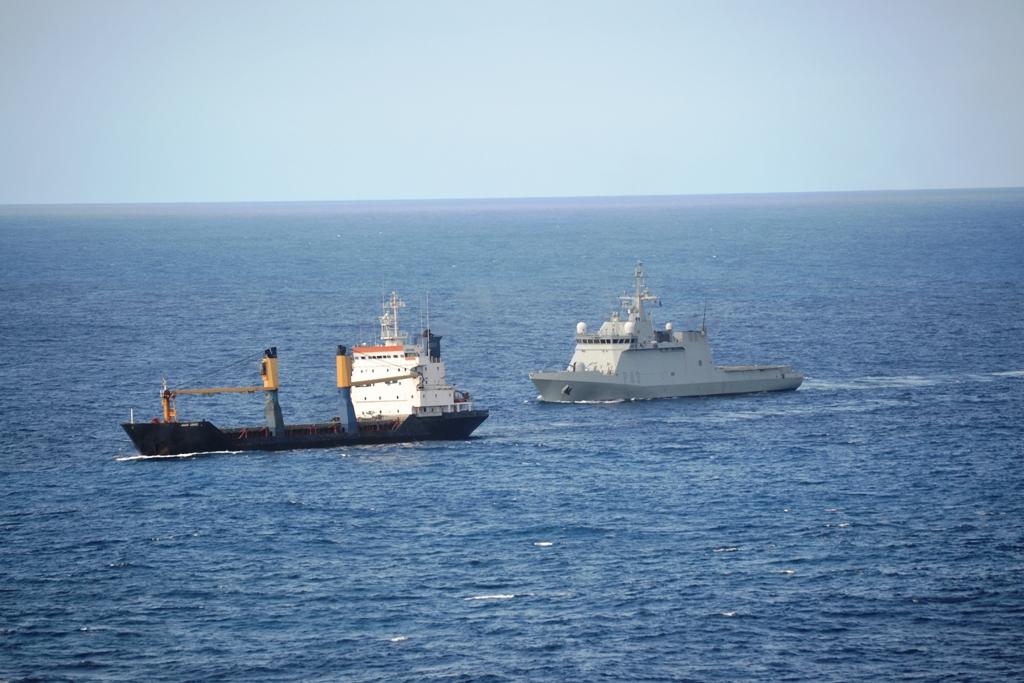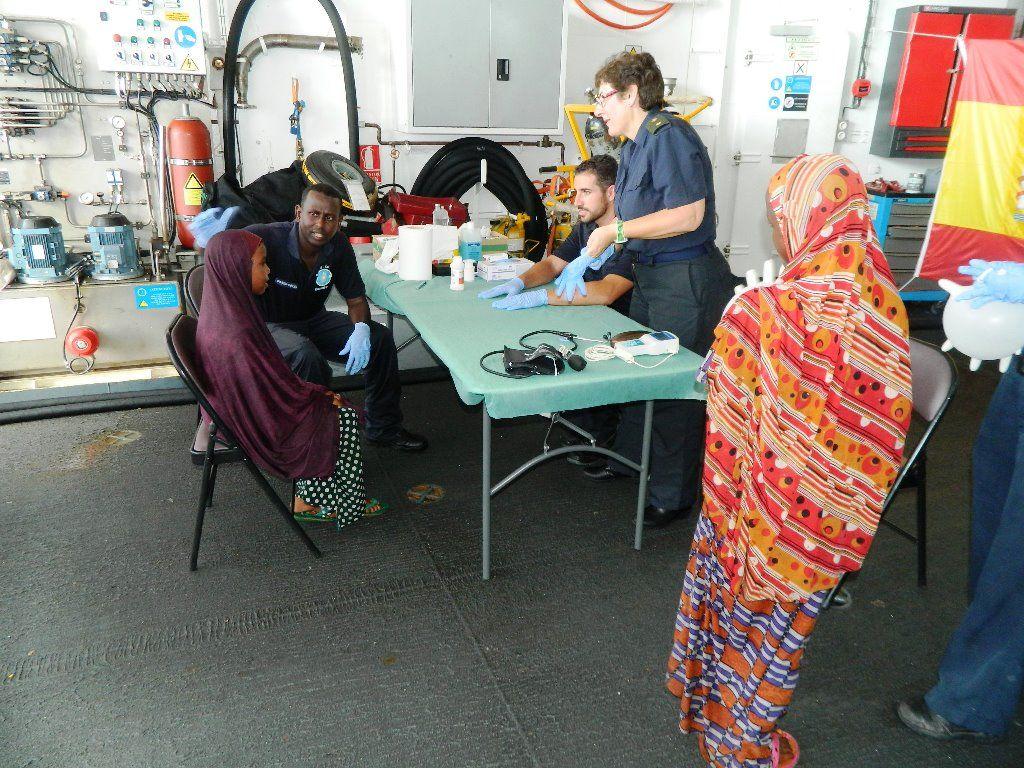The OPV ‘Relámpago’ concludes her participation in operation ‘Atalanta’
Friday, July 25, 2014
 + 2
+ 2

The oceanic patrol vessel (BAM in its Spanish initials) ‘Relámpago’, has been relieved by the frigate ‘Navarra’ in the European-led counter-piracy operation ‘Atalanta’ in the Indian Ocean.
In the course of the operation, the ‘Relámpago’ conducted a series of missions like escorting World Food Program ships, patrolling the IRTC (Internationally Recommended Transit Corridor) in the Gulf of Aden, and training regional maritime forces.
The ship held meetings on board with authorities from the city of Caluula, a former pirate haven in the Horn of Africa; other activities included medical assistance to local fishermen, and scheduled ports of call in different Persian Gulf nations to support our national shipbuilding industry.
The ‘Relámpago’, under the command of Lieutenant-Commander Isidoro Junguito, embarked an SH-60B helicopter for support tasks, as well as a Marine Corps squad.
This Spanish Navy patrol vessel is now sailing towards her home port in Las Palmas (Canary Islands) where she is expected to arrive by mid-August after a six-month deployment.
This is the second time this modern warship has participated in operation ‘Atalanta’. The previous one was in 2012.





